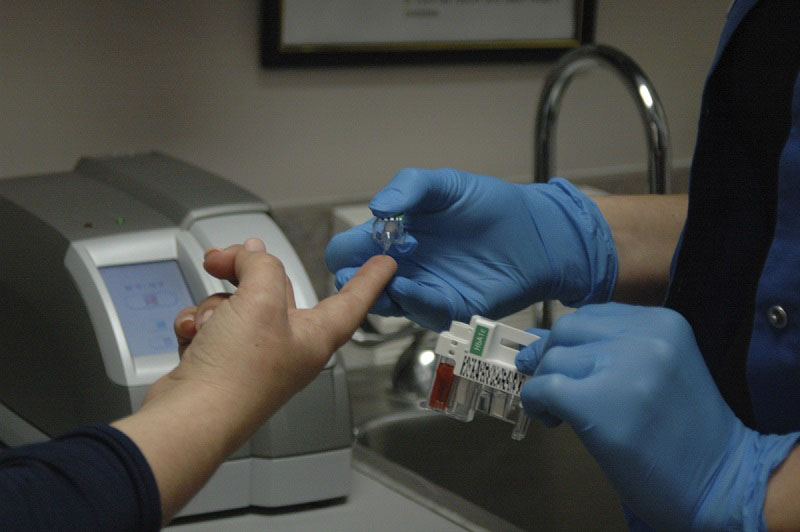Understanding Blood Group – Blood groups are a vital component of our biology that play a significant role in determining our overall health and well-being. In this article, we’ll dive into everything you need to know about blood groups, including what they are, how they work, and why they matter. By the end, you’ll have a better understanding of the importance of knowing your blood type, and how it can affect your life in numerous ways.
Understanding Blood Group / Understanding Blood Group / Understanding Blood Group / Understanding Blood Group
What are Blood Groups?
Blood groups are a system of classification for blood that is based on the presence or absence of certain antigens on the surface of red blood cells. These antigens are proteins that are recognized by the immune system, which can trigger an immune response if they are not recognized as “self.” There are many different blood group systems, but the ABO and Rh systems are the most well-known.
The Discovery of Blood Groups
The study of blood groups can be traced back to the early 20th century when Karl Landsteiner, an Austrian physician and immunologist, discovered the ABO blood group system in 1901. This groundbreaking discovery led to the development of the first successful blood transfusion, which saved countless lives in World War I.
The Four Main Blood Groups
The ABO blood group system is based on the presence or absence of two antigens, A and B, on the surface of red blood cells. There are four main blood groups within this system: A, B, AB, and O. Type A blood has the A antigen, type B blood has the B antigen, type AB blood has both antigens, and type O blood has neither antigen.
The Rh Factor
In addition to the ABO system, there is another blood group system known as the Rh system. This system is based on the presence or absence of another antigen, the Rh factor. If your blood has the Rh factor, you are Rh positive (Rh+), and if your blood does not have the Rh factor, you are Rh negative (Rh-).
Blood Types in Detail
Let’s take a closer look at each of the four main blood groups:
Type A Blood
People with type A blood have the A antigen on the surface of their red blood cells. They also have antibodies to the B antigen in their plasma. Type A blood can be safely transfused to people with type A or type AB blood.
Type B Blood
People with type B blood have the B antigen on the surface of their red blood cells. They also have antibodies to the A antigen in their plasma. Type B blood can be safely transfused to people with type B or type AB blood.
Type AB Blood
People with type AB blood have both the A and B antigens on the surface of their red blood cells. They do not have antibodies to either antigen in their plasma, which makes them “universal recipients” of blood. Type AB blood can only be safely transfused with other type AB blood.
Type O Blood
People with type O blood do not have either the A or B antigens on the surface of their red blood cells. They have both antibodies to the A and B antigens in their plasma, which makes them “universal donors” of blood. Type O blood can be safely transfused to people with any blood type, but people with type O blood can only receive blood from other type O blood.
Blood Transfusions
Blood transfusions are a medical procedure where blood is taken from a donor and given to a recipient. Blood transfusions are often necessary in emergency situations such as massive blood loss due to trauma, surgery, or childbirth. Blood transfusions are also used to treat certain medical conditions such as anemia, cancer, and blood disorders.
Blood Donation
Blood donation is a critical component of modern healthcare. Blood donors provide the necessary blood for transfusions that can save lives. Blood donation is a simple and safe process that takes only a few minutes. Donated blood is thoroughly screened for infectious diseases such as HIV, hepatitis B and C, and West Nile virus.
Importance of Knowing Your Blood Type
Knowing your blood type can be important for a variety of reasons. In emergency situations where blood transfusions are necessary, knowing your blood type can help medical personnel quickly find a compatible donor. Additionally, some medical conditions and diseases are more common in certain blood types. Knowing your blood type can also help you make more informed decisions about your diet, exercise routine, and overall health.
Blood Type and Diet
Some people believe that a person’s blood type can affect their dietary needs. The theory suggests that people with different blood types have different nutritional requirements. For example, people with type O blood are said to do better on high-protein diets, while people with type A blood are said to do better on vegetarian diets. However, there is no scientific evidence to support this theory.
Blood Type and Pregnancy
A person’s blood type can also affect their pregnancy. If a woman is Rh-negative and her partner is Rh-positive, there is a risk of the baby having a condition called Rh incompatibility. This can lead to hemolytic disease of the newborn, which can cause serious complications such as anemia, jaundice, and brain damage.
Blood Type and Disease Susceptibility
Certain medical conditions and diseases are more common in people with certain blood types. For example, people with type A blood are more susceptible to heart disease, while people with type O blood are less susceptible. Additionally, some viruses such as Norovirus and COVID-19 may affect people with certain blood types differently.
Blood Type and Personalities
Some people believe that a person’s blood type can affect their personality traits. For example, people with type A blood are said to be sensitive, responsible, and organized, while people with type B blood are said to be creative, passionate, and spontaneous. However, there is no scientific evidence to support this theory.
Blood Type and Compatibility
Blood type compatibility is an important factor in relationships and marriage in some cultures. In Japan, for example, some people believe that blood type can be an indicator of personality traits and compatibility. However, there is no scientific evidence to support this theory.
Rare blood group
There are many different rare blood groups, some of which are extremely rare and may only be found in a few individuals around the world. Here are a few examples of rare blood groups:
- Rh-null: This is the rarest blood type in the world, with fewer than 50 individuals known to have this blood group. People with Rh-null blood do not have any of the Rh antigens on their red blood cells.
- Bombay blood group: This blood group is also extremely rare and is found in less than 0.0004% of the world’s population. People with this blood group do not have the H antigen on their red blood cells, which means they cannot receive blood from anyone else except another person with the Bombay blood group.
- Vel-negative: This is a rare blood group that occurs in less than 1% of the population. People with Vel-negative blood do not have the Vel antigen on their red blood cells.
- Junior blood group: This is a rare blood group that is found in less than 1% of the population. People with Junior blood do not have the Jr(a) antigen on their red blood cells.
It’s important to note that people with rare blood groups may have difficulty finding compatible blood donors, as the pool of potential donors is much smaller. In some cases, they may require blood from a donor with the same rare blood group or special blood components that are difficult to find.
Conclusion
In conclusion, blood groups are a vital component of our biology that play a significant role in determining our overall health and well-being. Understanding your blood type can be important for a variety of reasons, including emergency situations, pregnancy, and disease susceptibility. While some theories suggest that a person’s blood type can affect their dietary needs, personality traits, and compatibility, there is no scientific evidence to support these claims.
FAQs
Can a person’s blood type change over time?
- No, a person’s blood type remains the same throughout their life.
Is it safe to donate blood?
- Yes, blood donation is a safe and straightforward process. Donated blood is thoroughly screened for infectious diseases to ensure its safety.
How often can a person donate blood?
- In most cases, a person can donate blood every 56 days, or every eight weeks. However, specific guidelines may vary depending on the individual and the blood bank.
Can a person determine their blood type at home?
- While there are home blood typing kits available, it is recommended that individuals get their blood type tested by a medical professional for accuracy and safety purposes.




